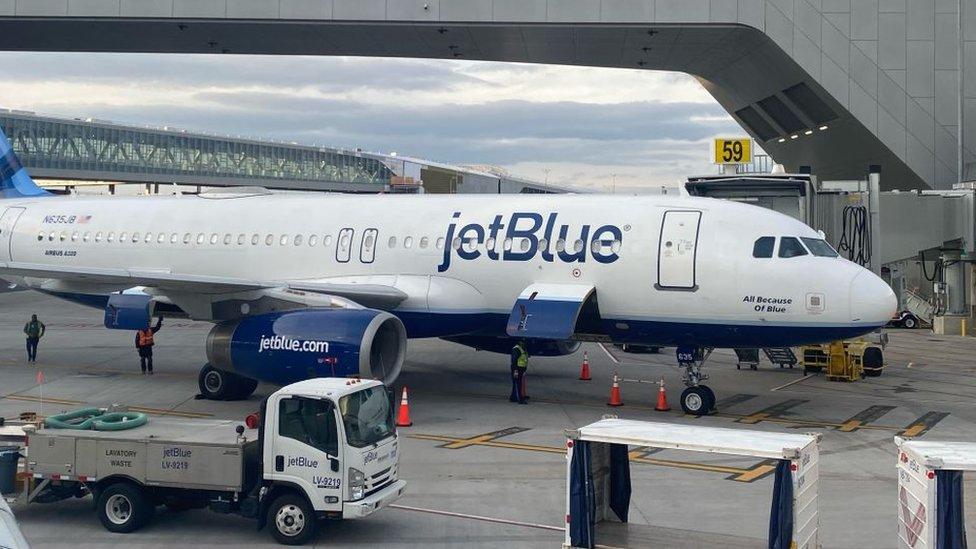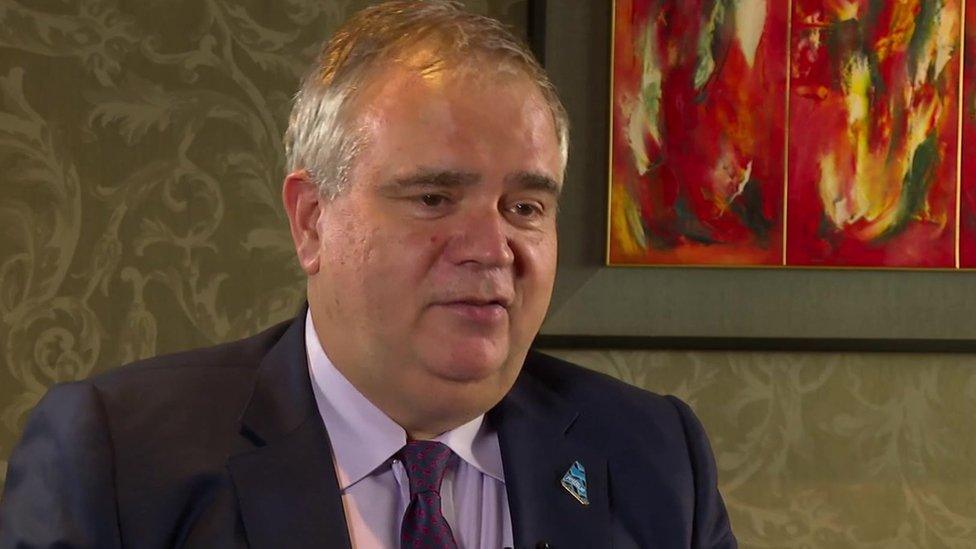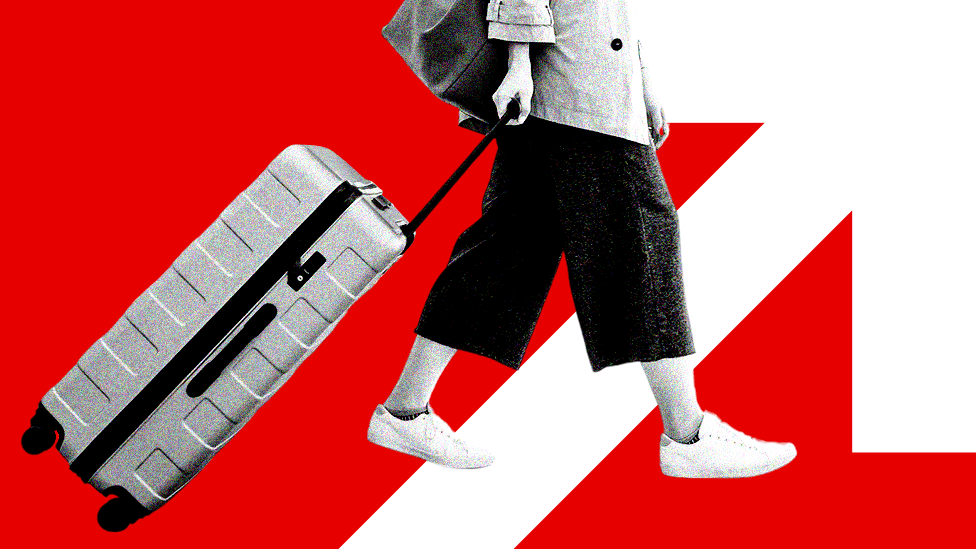JetBlue airline boss over-hiring to beat staff exodus
- Published

The boss of US low-fare carrier JetBlue has said it is necessary to over-hire staff because of the rate at which people are still leaving the industry.
Robin Hayes was speaking as thousands of travellers have been hit by recent disruption, caused largely by staff shortages that have blighted the re-start of air travel after the pandemic.
Airlines have cut summer schedules and made last-minute cancellations.
"I now need to over-hire just to keep the number I need," he told the BBC.
"With Covid, we lost a lot of experienced people," he added.
Airports and airlines, which cut jobs during Covid lockdowns, have found it difficult to recruit enough staff as demand for holidays has surged.
JetBlue had he said seen the situation "normalise" as the summer has progressed.
But he said the firm, like other airlines, had adjusted its hiring plan to cope with people leaving more quickly - by employing more staff.
By the end of 2022, half of JetBlue's employees would have been with the airline for less than two years.
"Even if you can get the people, they don't have the same experience as someone who was doing that job for 10 or 15 years, so it's going to take longer for them to learn the skills," said Mr Hayes.
Those adjustments can take "some months" but Mr Hayes said Jet Blue has increased its training capacity, added more simulators and built extra classrooms in order to keep hiring.

"Your attrition is much higher," he added. "You're hiring people but then they're leaving more quickly so you then have to adjust your hiring plan."
Mr Hayes does not expect the aviation industry to be back to normal until next year.
He said airlines would approach 2023 more "cautiously" than they had this year when many carriers, including JetBlue, have had to scale back their operations due to the resourcing challenges.
He said he expected that by the end of this year, business travel would likely recover to 80% of 2019 levels.
The US has been dealing with problems caused by a shortage of pilots. According to United Airlines, pilots are expected to remain in short supply for years.
The airline recently said the country is only able to produce a maximum of 7,000 pilots a year, but carriers need 13,000 this year.
However, in the UK shortages are worse for cabin crew and ground staff.
Last week JetBlue reported a £125m loss for April to the end of June, but Mr Hayes says he believes the company will return to profit in the July to September period.
By the end of October, JetBlue will have increased the number of flights it operates between the UK and US from one to five a day.
It comes a year after JetBlue entered the transatlantic market, with its first daily service between New York and London Heathrow and it now also runs a new daily service between Boston and London Gatwick.
Mr Hayes said he expected ticket prices to go down slightly as jet fuel begins to retreat from its high prices.
He said JetBlue had been only slightly affected by the Heathrow flight cap which saw the airport limit the number of passengers who can depart each day to 100,000 over the peak summer months - 4,000 fewer than current levels.
The move prompted JetBlue to halt ticket sales a couple of times, although this has not had a major impact on its operations.
Related topics
- Published14 July 2022

- Published13 July 2022

